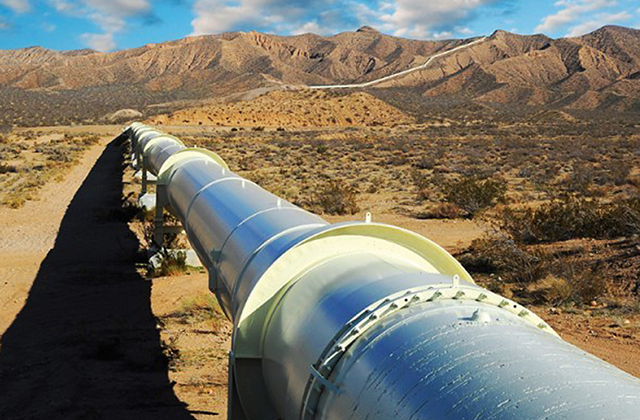
Russia, Azerbaijan and Europe

Our sworn friend Russia and that much sworn enemies are in active socializations. A few days ago presidents of Russia and Turkey signed a document, the so-called “Turkish flow” on construction of a gas pipeline.
Agreements between the two countries around this gas pipeline have been reached right after Europe stated that it would attempt to decrease its dependency on Russian energy resources.
Then, due to freezing of Russia-Turkey relations, negotiations around the gas pipeline have been suspended. Currently they entered a new phase. Moreover, it’s being touched upon that the “Turkish flow” will have two branches instead of one. Main purpose of this gas pipeline is supplying gas not to Turkey, but to Southern Europe.
Based on the new accord, the gas pipeline will be exploited in December 2019. However, after the agreement was reached, the first figure of Russian official media—Dmitry Kiselyov, well-known for his activity of Griboyedov Club in Armenia, had an interview with Azerbaijani president. The latter clearly stated that Russia-Turkey gas pipeline can’t contradict the interests of its country. As it can’t compete with Southern Gas Corridor. From the very start of West-Russia conflict European countries started to develop new projects to mostly protect their economy from Russian influence. Currently construction of the gas pipeline of supplying Middle Asian and Azerbaijani gas to Southern Europe has been already launched.
The gas pipeline will stretch from Middle Asia, Caspian Sea to Azerbaijan, then from Georgia to Turkey, then to Greece. The last part—Trans Adriatic Pipeline (its construction has already been launched) will provide gas to Italy. In an interview with Russian TV Aliyev provided detailed information on the project. In 2018 Azerbaijan will expand gas export, reaching to its peak in the period of 2020-2021. Pursuant the draft, supply of Southern Gas Corridor will comprise 16 million square meters.
From this volume 6 will be used by Turkey, and 10 billion to the EU, in particular—Italy. 1/3 of the gas, consumed in Italy, is Russian. In fact, Azerbaijani and Middle Asian gas is becoming a serious counterbalance in the European market. Counterbalance to the Russian one. Also, as compared to Russian pipelines, the EU member countries finance construction of Southern Gas Corridor. Moreover, the EU has already adopted the decision on providing economic privileges to the pipeline.
Azerbaijani president stated that two accords on gas supply have been signed with the EU member countries. Thus, construction of Russia-Turkey “Southern flow” doesn’t bother him. Aliyev particularly stressed that until now not a single country has signed an agreement with Russia regarding the gas pipeline. It’s really difficult to imagine, that Russia will take the burden of “Southern flow” only for the Turkish market.
Based on data, issued by Gazprom, 27.1 billion m3 gas has been supplied to Turkey in 2015, which comprises 60% of the country’s demand. However, on the other hand, it’s clear that Southern Gas Corridor is becoming an alternative for Turkey and partially solves the issue of dependency on Russian energy resources. In punishing economic decisions, adopted against Russia, Europe has implemented rather constructive changes, implications of which already “surprises” Russian experts.
About 10 years ago consumption of European gas comprised 500 billion m3 per year. Experts were supposing that now it should have reached 700 billion. Meanwhile, the EU economic sanctions through parallel actions succeeded to reduce annual demand to 400 billion. And now it attempts to construct a new line of Middle Asian-Azerbaijani gas. According to many international experts, not the interests, but political factor will be decisive.
Accordingly, the EU won’t empower construction of “Northern flow 2,” bypassing Ukraine. It won’t provide the opportunity to supply gas through “Southern flow” to southern countries either, in that case hope of Russian gas exporting state enterprises relies on the Great Britain, which exited the EU. Gazprom stresses in its reports, that supply of gas to that country this year has grown by more than 50%. And other real hope is “flexibility” of Turkish-Azerbaijani companies. Azerbaijan, which proposed its gas to the EU member countries and was provided financial and economic assistance by them, already has an agreement on importing 2 billion m3 gas from Russia.
Presently the new accord is being touched upon, which will comprise 3-5 billion m3. That volume, of course, isn’t serious for Russia. However, rather serious amount will be provided to Azerbaijan, which is becoming a “disguised” mediator of exporting Russian gas to Europe. Here is a contemporary and political original snapshot of interstate relations.
By Ara Galoyan

























